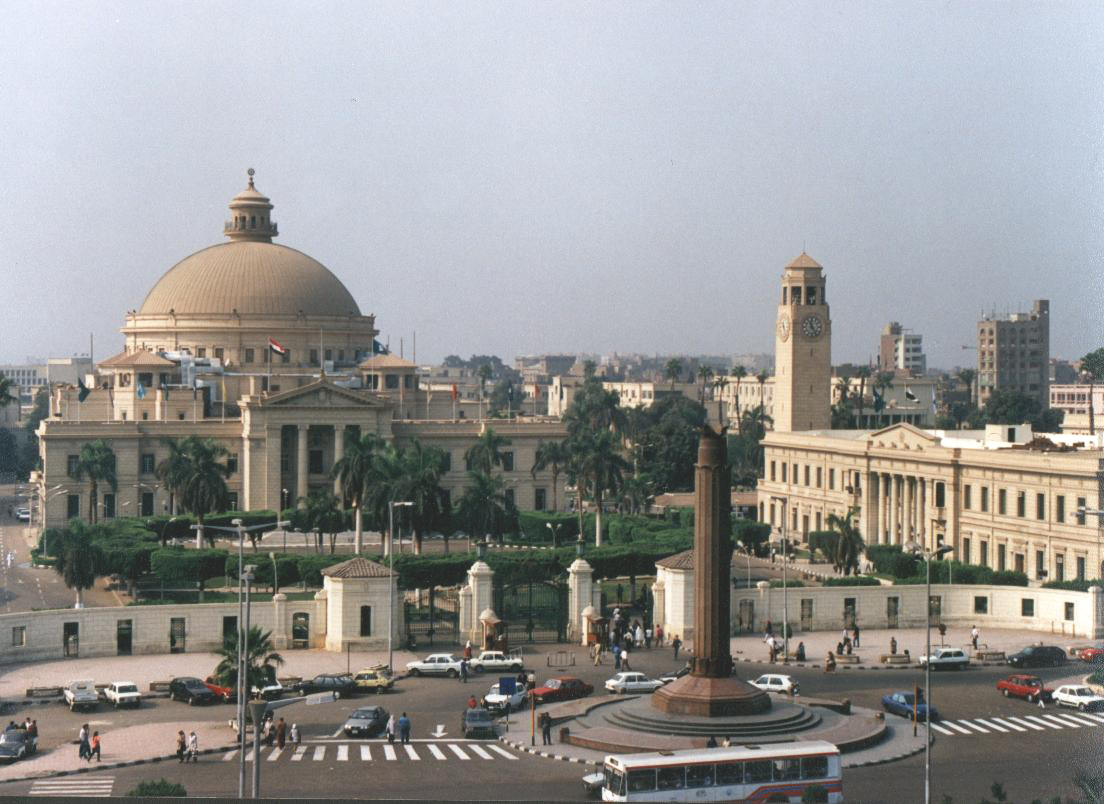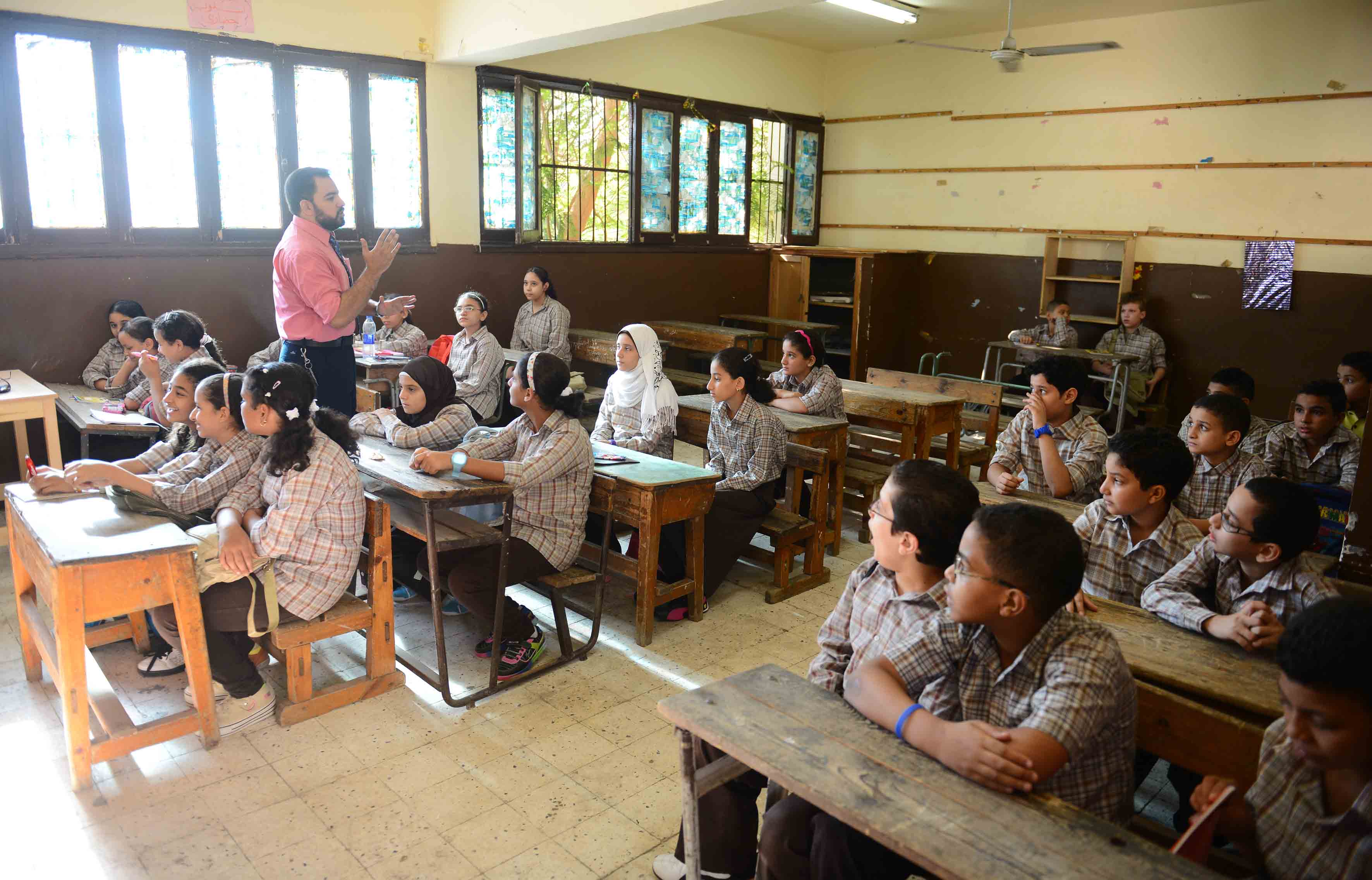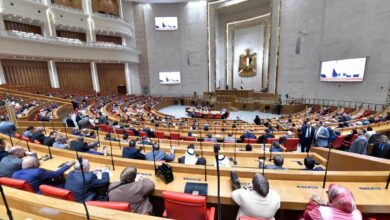Last month, Egyptian teachers came from every governorate and gathered on Qasr al-Aini Street in front of the Cabinet. They were fed up with their financial conditions and were tired of being ignored. After gathering exactly one year earlier to demand better pay and the overall improvement of the education system, their demands had been forgotten like many others before them. “Long Live the teachers’ struggle,” they shouted with fervor and conviction. September was a month of strikes, they said. It seems the Independent Teachers’ Syndicate is adamant on making this statement a reality.
What was perhaps most salient about that strike was the discourse adopted by the participating teachers: “Take a look at our clothes and at the way we look. This is an indication of how well we are doing,” exclaimed one teacher. A sense of shame for not being dressed “appropriately” due to dire economic conditions is widespread among many of them. “You would not want your children to be instructed by teachers who wear worn out clothes. Or teachers who do not enjoy any social security, would you?”
Central to the strike is the demand concerning the implementation of an adequate minimum wage. Many of them make between LE250 and LE500 a month (plus incentives and bonus), a salary that is insufficient to sustain one individual, let alone an entire family. This is why many are forced to work outside of the teaching profession as delivery boys, tuk tuk drivers, taxi drivers and carpenters. The widely contested practice of “private tutoring” is also partly an outcome of teachers’ low salaries. Many in the strike swore they did not want to give such private lessons and thought it demeaning that their time after working hours consisted of home visits.
At first sight, such demands may seem one-dimensional or even purely materialistic. However, if we place them within the wider discourse used by those teachers, a different image emerges. Widespread is the belief that teachers play a central role in the progress of the nation. As one of the striking teachers put it, “Any society in the world cannot progress without the progress of education and education cannot possibly progress without the progress of teachers.” Another teacher also insisted, “We are not striking for a sum of money; we are striking for the improvement of an entire education system which targets your children.”
The teachers also directed their appeal to parents, claiming that it was their national duty to support the teachers’ plea because they have their children’s best interest at heart. They also lamented the quality of education and the fact that the entire system revolves around rote memorization. The prevalent teaching techniques, which lack imagination and inhibit creativity, were also heavily criticized by the striking teachers.
Anyone familiar with the history of education or teacher training in early twentieth century Egypt, will have come across many of the issues raised by today’s striking teachers.
Teacher training manuals from 1914 such as “Usul al Tarbiyya wa Fan al Tadris,” for example, suggest that teachers must pay attention to their appearance. Clean clothes and a neat appearance are key to gaining students’ respect and appreciation and should reflect a teacher’s role model status, explains the author of the manual, Amin Morsi Kandil.
The beginning of the 20th century also witnessed a debate on teacher salaries. For example, in Said Ismail Ali’s “Qadaya al-Ta‘lim Fi ‘Ahd al-Ihtilal” there is a description of how education was neglected under British occupation leading to a general decline of the profession’s reputation in society. Teachers remained underpaid and teachers’ colleges suffered from lack of funding up until at least 1908.
The role of school teachers as educators of the future generation was especially important to the Egyptian nationalist discourse at the turn of the century. Kandil’s work, for example, suggests that someone with such value whose work is so closely related to social life needs to be chosen carefully because the happiness of the nation depends on him. As “modern” as these ideas look, they were not democratic. They often called for top-down reform of the educational system, believing that society's “greater good” dictated by the policy makers superseded any benefits on the level of the individual that might result from grassroots initiatives.
Early Egyptian educators were also often — but not always — influenced by the principles of progressive education, especially the works of Herbert Spencer, John Dewey and George Merick, which promoted the idea that education should emphasize experiential learning, critical thinking and creativity. Kandil’s manual too maintains that teaching is not about filling up students’ brains with information, but rather aims to teach them how to think for themselves, to bring out their personalities and teach them to become self-reliant.
The Ministry of Education has appropriated many of these ideas in the last 10 years, as reflected in the push for more “active learning” and the implementation of a comprehensive assessment system, in which children are graded on their portfolios rather than just exams. Yet in the absence of real teacher participation and real conversation with educators, these ideas remained part of a discourse which never materialized.
The genius behind the current teachers’ movement lies in the fact that it completely challenges nationalist education in its most dogmatic forms, while at the same time revisiting the debate on progressive education. In addition to the many recurring issues raised by the teachers throughout their strike, they are introducing two distinct elements that embody the changes in Egyptian society since the revolution and give their movement an interesting twist.
First, the current teacher movement is calling for teacher participation in setting curricula and education laws. This is a huge step in the direction of participatory democracy within the education system, which represents a challenge to both the authorities and to the entire centralized education apparatus. It also challenges the dogmatic nationalist narrative on education. Could this lead to decentralized curricula in the future? What are the implications for the broader nationalist discourse? Can we envision a future in which curricula and education laws are set by the real stakeholders? These are some of the questions that we should be asking ourselves, especially now as the Constituent Assembly finalizes a draft constitution, whose articles on education are described as a deficient top-down approach to education.
Second, and perhaps more importantly, many of the striking teachers insisted that the first lesson to give students this year should have been how to peacefully stand up for their rights. While such ideas are most likely informed by the principles of progressive education, the interesting thing this time around is that the teachers themselves are proposing them, rather than the Ministry of Education. This reflects the genuine desire of a new generation of teachers marked by the societal changes taking place around them. What other pedagogical ideas do our teachers have? Will they have the space to incorporate them? Can this be the beginning of a new pedagogical conversation?
If anything, the teachers’ plea deserves more of our attention. Taha Hussein once said: “An oppressed and humiliated man cannot but produce oppression and humiliation. A man raised under submission and slavery cannot produce freedom and independence.” It is time for us to learn from the teachers who seem determined to break free from the shackles of slavery and submission.
Farida Makar has a MST in Modern Middle Eastern Studies from Oxford University.




